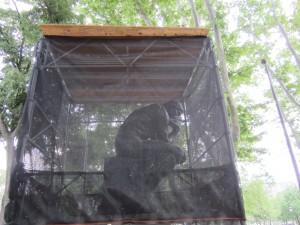
One of the ironies of the human condition is that oftentimes the more we have, the less grateful we become. When I lived as a Peace Corps Volunteer in a village high in the Andes of Ecuador, among the Quichua people who lived in earthen huts, had no running water and little access to medical care, I saw how for them nothing was taken for granted. Food was precious. Health was precious. The thatched roof over their heads was precious. A child who survived infancy was precious.
In our country, as we approach Thanksgiving, the holiday catalogs are already beginning to pour in, inundating us with glossy pictures of all the things we can buy. But before the Christmas deluge I want to step back and take stock of all the things that I already have that are the true treasures in my life: friends and loved ones, food to eat, a place to call home, my beating heart, the sound of the rain falling outside my window, the air that fills my lungs, the ability to wake each morning to live the miracle of another day. For all of these precious gifts and more, I say, “Thank you.”






